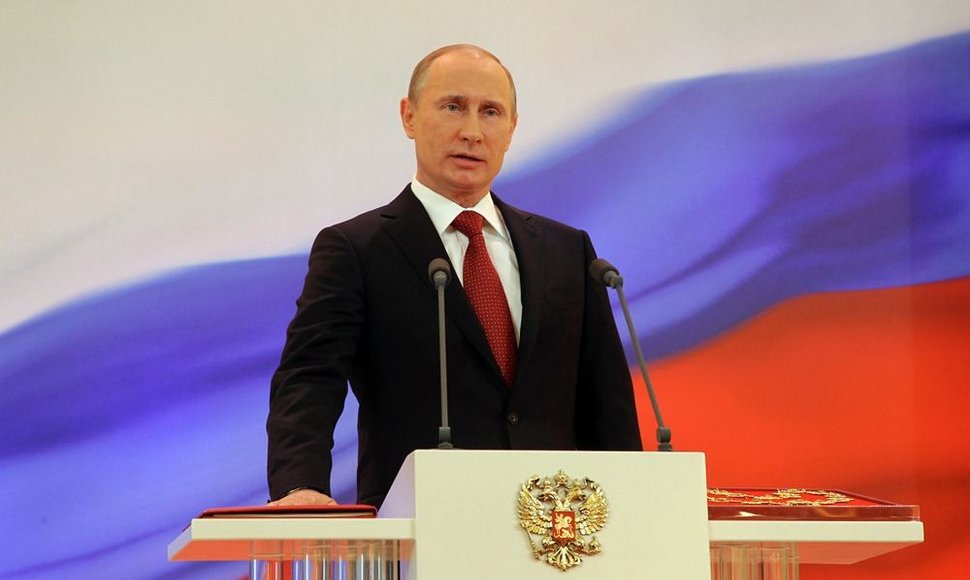"The relations with the Baltic states, although not entirely monotonous, can be described as rather cold and not changing. I believe nothing will change in the coming years, the indifference and somewhat provocative behavior will continue," Jakniūnaitė told BNS on Monday, the day of Putin's inauguration.
Jakniūnaitė, expert at Vilnius University's International Relations and Political Science Institute, says that changes in Russia's policies with regard to the Baltic states should go beyond the Moscow-EU dialogue during Putin's reign in the Kremlin.
"On the European level, this means that Russia may change its policies in, for example, energy or infrastructure projects. But this is not due to pressure from Lithuania, Latvia or Estonia but in return for some concessions from the European Union or Commission. This is what it looks like so far. EU is just a player who can help us but also make things worse for us," said Jakniūnaitė who heads the Institute's Russian and Central Eastern European Studies Center.
In her words, the so-called Eurasia Union project was not aimed at Russia's Western neighbors but was an “attempt to incorporate the post-Soviet regions of Asia."
"This was Putin's attempt to show his face in foreign policy after his candidacy was announced for the presidential election. It served as counter-balance to Medvedev's European security architecture project, a notification of such interest. It seems to me that it is first of all a rhetorical and declarative message, as it only encompasses highly traditional and unquestionable allies of Russia – Belarus and Kazakhstan," Jakniūnaitė said.
In her opinion, the success of the project will depend on the number of those willing to join in, while no reliable partners have been seen so far.
Speaking about the domestic situation in Russia, the expert said that more freedom “shouldn't be expected”, regardless of the administration's rather liberal attitudes towards mass protests before the presidential race. In Jakniūnaitė's words, this is illustrated by the militia's move on the eve of the inauguration to disperse a protest rally with rubber sticks.
"Many were astonished to see far more relaxed attitudes towards protestsbefore the election. However, what we saw yesterday and what we will probably see today is somewhat different. At least from the reports we can see that the degree of violence used was much higher than expected, and it looks like this has to do with the fact that the election has already passed – there's nothing to worry about, there will be no election for a few years," she added.
The political expert said she was not expecting any changes in the Putin-led Russian policy towards NATO.
"Policies with NATO remain unchanged, the cooperation is minimum, a little more intense in Afghanistan. I do not think the change in positions is a factor. The relations will be altered by changes in international policy, as it was the case with Libya and the ongoing discussions on Syria. The relations will be influenced by clashes and different opinions here," Jakniūnaitė told BNS.
On Monday, Putin embarked on his third tenure as Russia's president. He returned to the Kremlin after a four-year break, replacing Dmitry Medvedev who is expected to become the country's new prime minister.
Changes in civil society
Lithuania's Parliamentary Speaker Irena Degutienė says that protest rallies in Russia show changes in the country's society and give hopes for future changes in the political situation.
"The Russian presidential election showed that Russia's civil society is rising to become more visible and these are encouraging civil processes that should not be confused with actions or deeds of the Russian administration. Current developments in Russia show once again that the Russian society is on its path to become more democratic, which gives certain hope that the situation in Russia should change," Degutienė told journalists on Monday in comment of the events in Russia and Vladimir Putin's inauguration to the Kremlin.
"The Russian presidential election clearly brought little change to the administration," she added.
























